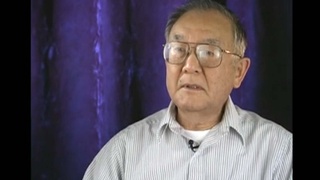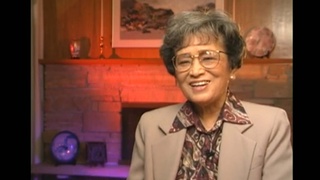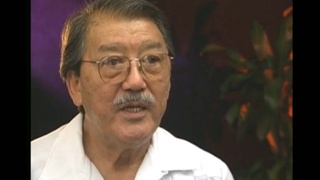Interviews
Recruited for the National JACL Redress Committee
Iva Toguri [“Tokyo Rose”] got her pardon in 1977, and it was that year, the same year that I suddenly got a call from Ed Yamamoto1 of the JACL national board. He asked me if I would take over the chairmanship of the JACL national—in those days it was called the reparations committee. I said, no. Because, to begin with, I was never in camp, I thought it should be somebody that was in camp that should be the chair. I knew nothing about the camps, and I knew nothing about redress.
And he kept calling me back, and each time he said, “I spoke to the board and they said to try again.” After several calls, I thought to myself, well yes, I do have this experience of going through the Iva Toguri campaign. At least I could nationalize the redress campaign and then after it’s nationalized, people could carry on from there.
I knew redress is not going to be done by one or two persons it would [have to] be done by many individuals. It would be the political aspect, and for that I want to leave it to the politicians. So I said okay, I would accept it.
1. Edward M. Yamamoto was appointed chairman of the JACL Reparations Campaign Committee in 1976. Yamamoto and his then newly created committee had to consider various redress plans for presentation at the 1976 convention. The convention unanimously adopted a resolution calling for monetary payments, and also produced a mandate for seeking federal legislation to provide for reparations.
Date: July 1-2, 1998
Location: California, US
Interviewer: Mitchell Maki, Darcie Iki
Contributed by: Watase Media Arts Center, Japanese American National Museum








